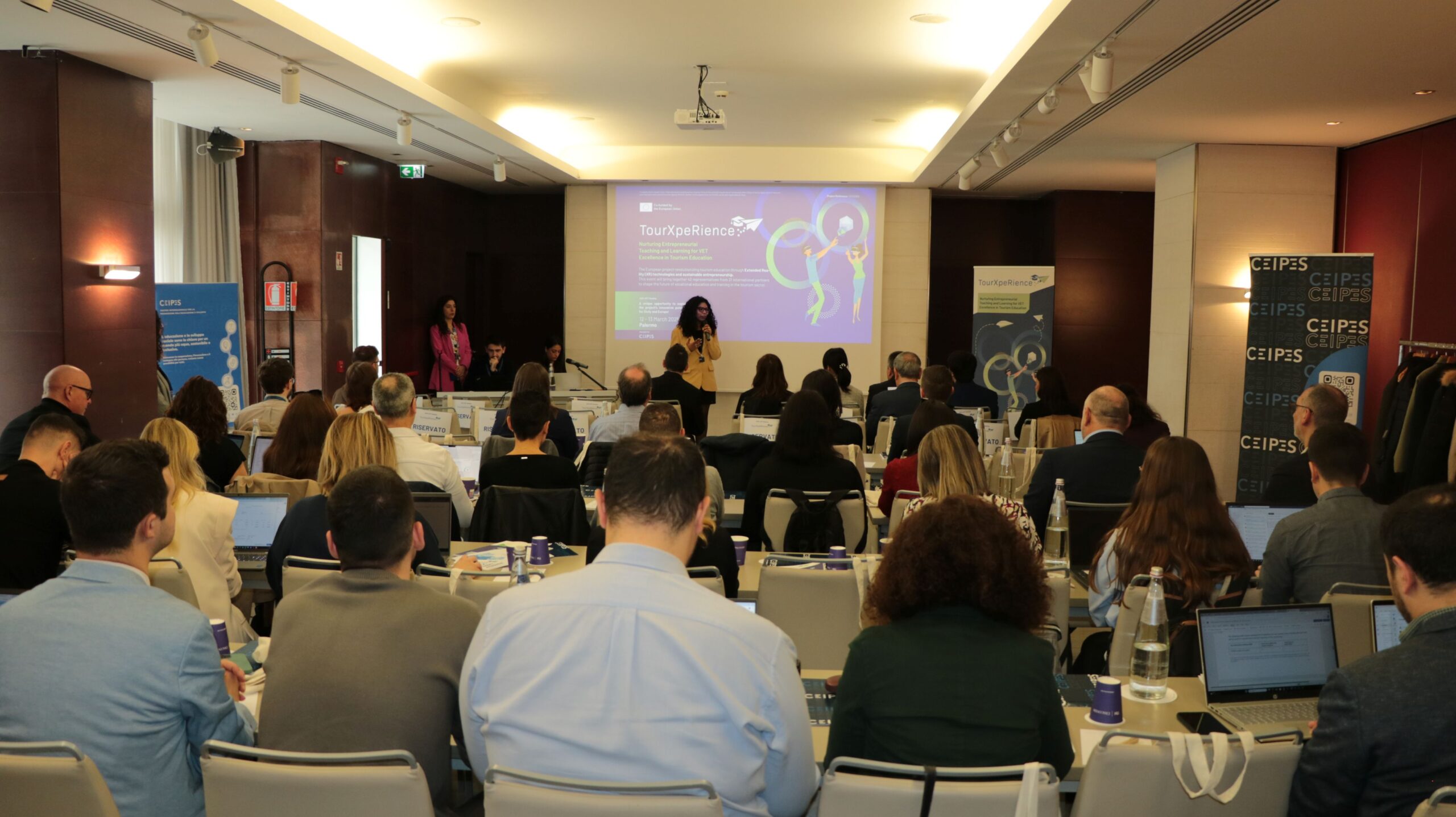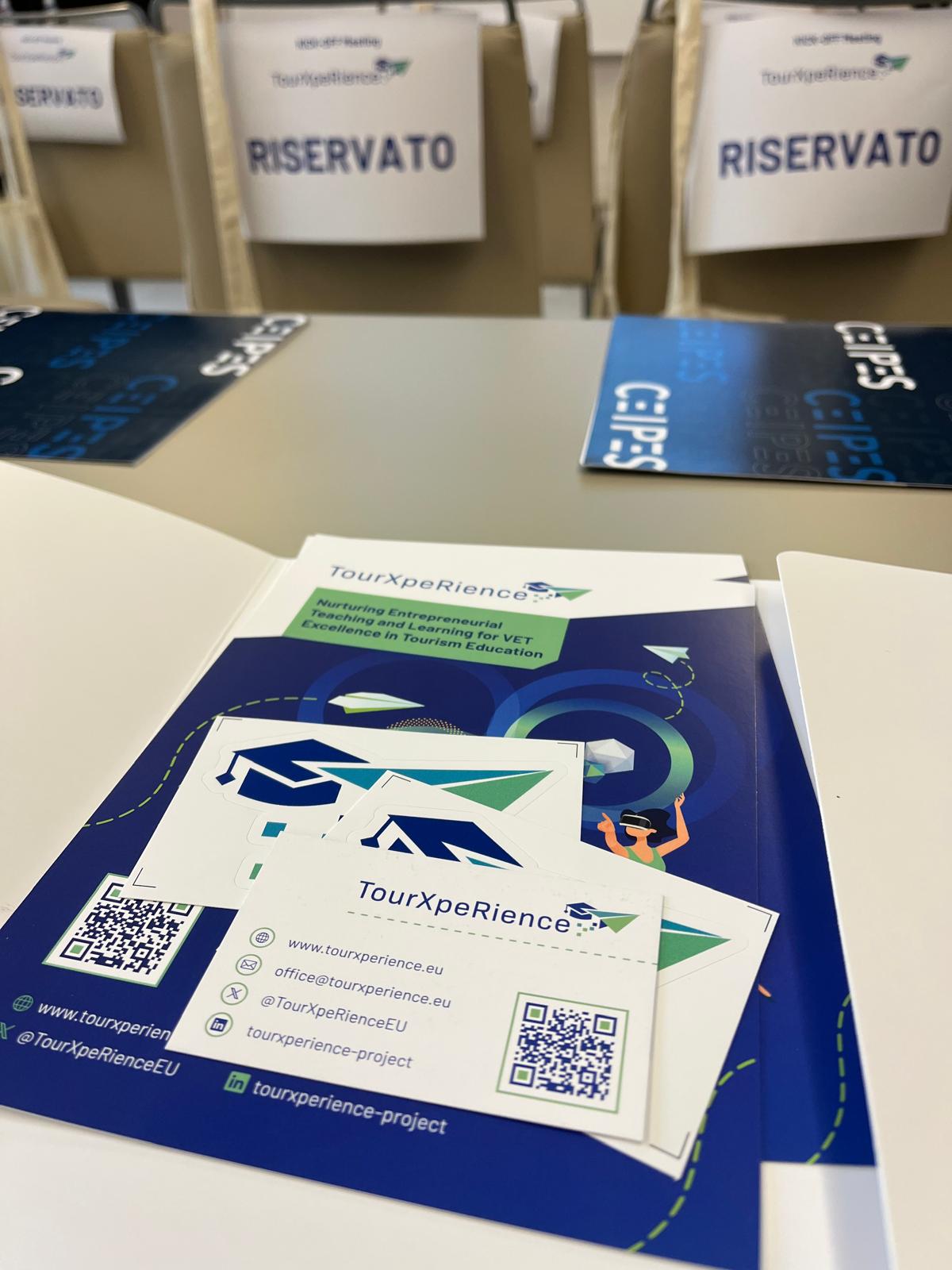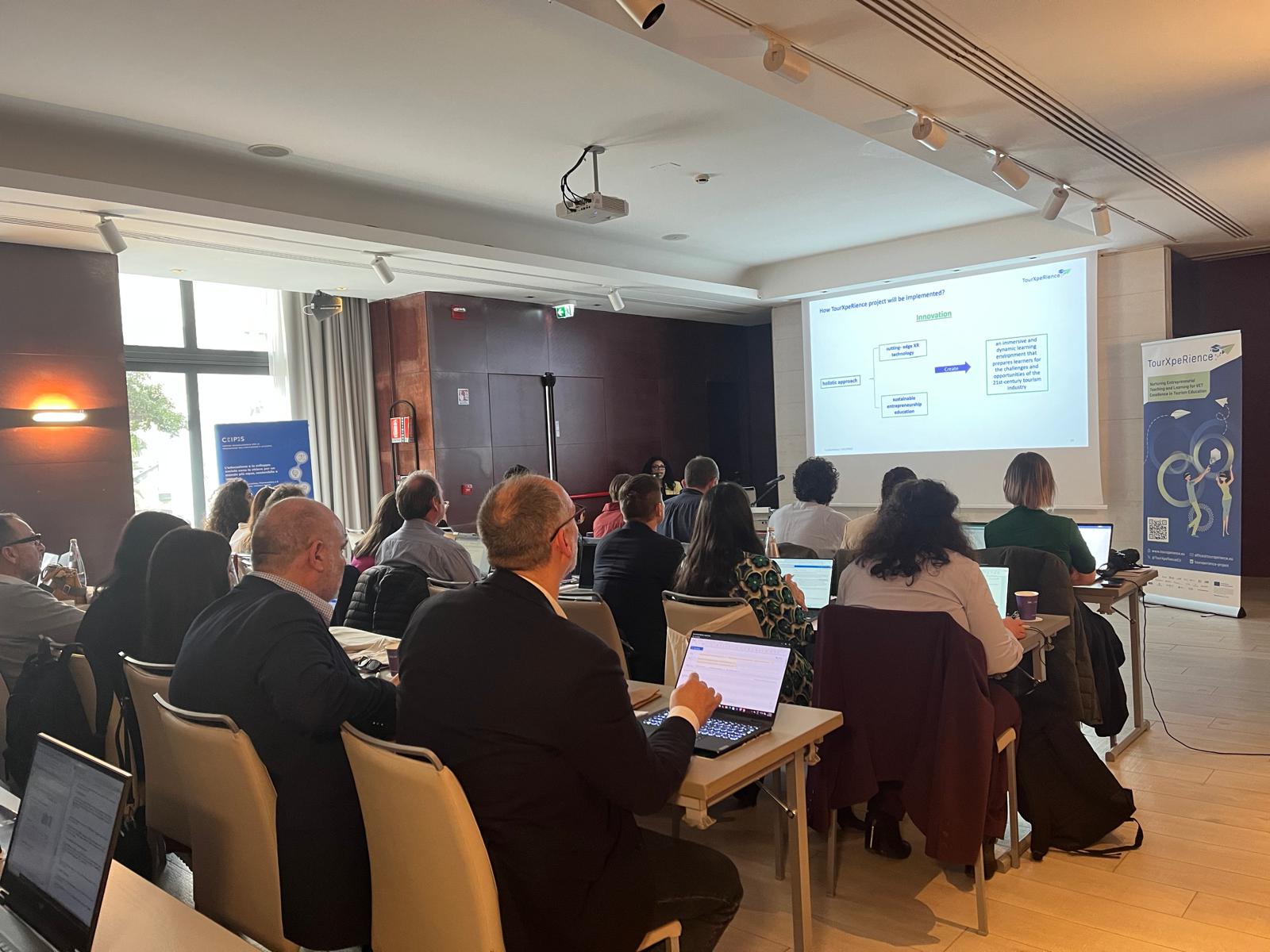The TourXpeRience kick-off meeting took place in Palermo, Italy, on March 12-13, 2025.
The project is cofunded by the Erasmus Plus Programme (CoVe).
The main goal of the project is to modernise vocational education and training (VET) in the tourism sector through the application of XR (Extended Reality) technologies, including AR (Augmented Reality), VR (Virtual Reality), and MR (Mixed Reality). These technologies have demonstrated significant educational benefits, particularly in the wake of the COVID pandemic, by enabling the integration of digital content with real-world environments, thereby enhancing the quality and immersion of learning experiences.
The tourism sector often lacks formal training requirements, which creates the need for new, structured and ongoing education. The rapid evolution of the state of the industry necessitates continuous updates to training methods to keep pace with new technologies and trends. Additionally, there is a pressing need to adopt sustainable practices to balance environmental, economic, and social interests and futures.
Through the incorporation of XR technologies, the project seeks to update VET curricula, provide essential training resources, and equip students with the skills, digital competencies, and environmental awareness required for leadership in sustainable tourism. By fostering collaboration among educational institutions, industry representatives, and policymakers, the project aims to mitigate adverse socio-cultural, economic, and environmental impacts of the tourism sector while enhancing its competitiveness.
The project is coordinated by CEIPES from Italy (Palermo). Twenty other organizations are also involved: Learnable, ITET MARCO POLO, and ITS Turismo Marche from Italy, UPCT, SEF and CETEM from Spain, KIT, E.A.C.E and DATEY from Germany, VSGT, and RDAPM from Slovenia, WUAS from the Netherlands, IVEPE-SEV, INSETE from Greece, ETHP, and SHINE from Portugal, SGGW, IPHZR, and ITEE from Poland, and INTERSPREAD from Austria.

During the meeting, the partners had the opportunity to present their organisations and define the work plan for the coming months.
The topics discussed were as follows:
- WP2. Mapping of VET opportunities and labour market demand within the touristic sector
- WP3. Teacher training and capacity building: TourXpeRience Training Programme
- WP1. Project Management & Coordination
- WP11. Quality Assurance & Risk management
- WP4. Learner-Centred Design Methodology (LCDM) for XR exercises with educational purposes
- WP10. TourXpeRience Community Building and Sustainability
- WP9. Dissemination and Exploitation



